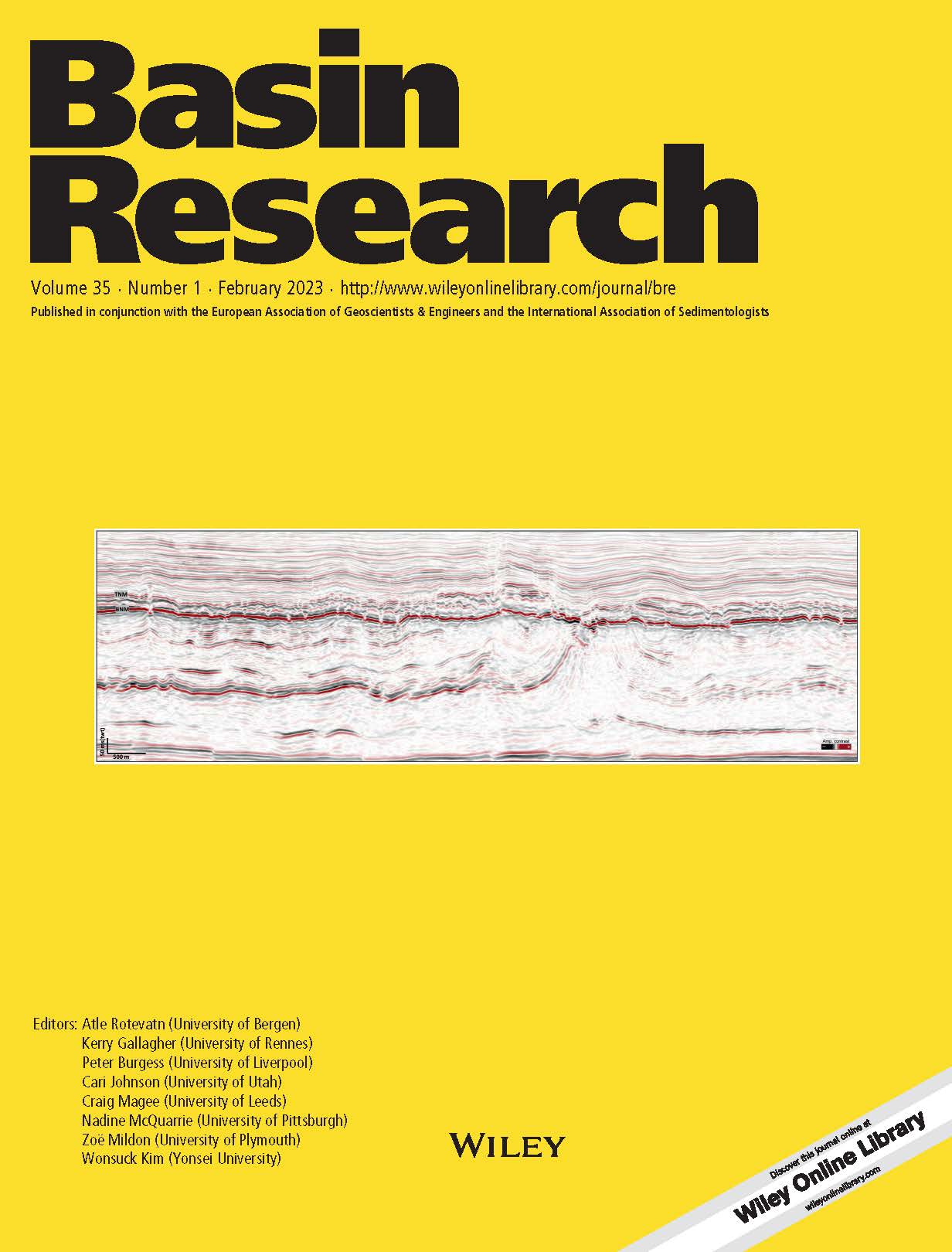
Full text loading...
 , Cornel Olariu1, Valentina M. Rossi2, Daniel Minisini3,5, Walter Brinkworth4, Laura M. Loss4, David Giunta4, Griselda Vocaturo4
, Cornel Olariu1, Valentina M. Rossi2, Daniel Minisini3,5, Walter Brinkworth4, Laura M. Loss4, David Giunta4, Griselda Vocaturo4
New Cuyo Group outcrop data complement recently published seismic and well data that detail the progradational character of the Lower‐Middle Jurassic Neuquén Margin (Argentina). The deepwater margin, with shelf topset (Lajas Formation), slope break and deepwater slope to basin‐floor deposits (Los Molles Formation), prograded northward and westward as large‐scale clinoforms (250–500 m high) for 120 km, during 13 My, supplied by sediment mainly from the North Patagonian Massif. The studied Lajas Formation topsets are themselves progradational, with a 500 m‐thick vertical succession of subaqueous delta, shoreface with associated tidal flat, mouth bar, fluvio‐tidal channel and alluvial plain deposits. This pattern is confirmed by facies analysis in five areas of outcrops and well data but is interrupted by frequent marine transgressions that add a short‐term cyclicity to the succession. A new paleogeographic map suggests previous disagreements on process stratigraphy are due to shoreline/paralic strike variability and to increased basinal process impact as the topset/shelf widened. A marked feature of each Lajas topset sequence is a differential partitioning of sand and mud, though not with a simple proximal to distal grain‐size reduction. The sand‐prone outer shelf passes landward to a channelized muddy shoreline environment, and then to a mixed sandy and muddy channelized coastal and alluvial plain. This type of partitioning, important for the characterization and prediction of reservoir quality, can also be recognized on seismic and well log data.
,New outcrop, ash‐bed dating and well data have been integrated with recently published seismic data to detail the paleogeographic development of the Early‐Middle Jurassic Cuyo Group margin in southern Neuquen Basin. The topsets partition into sand‐rich subaqueous deltas, a muddy tidal shoreline zone and an inner topset alluvial zone that can be detected on subsurface data.

Article metrics loading...

Full text loading...
References


Data & Media loading...

